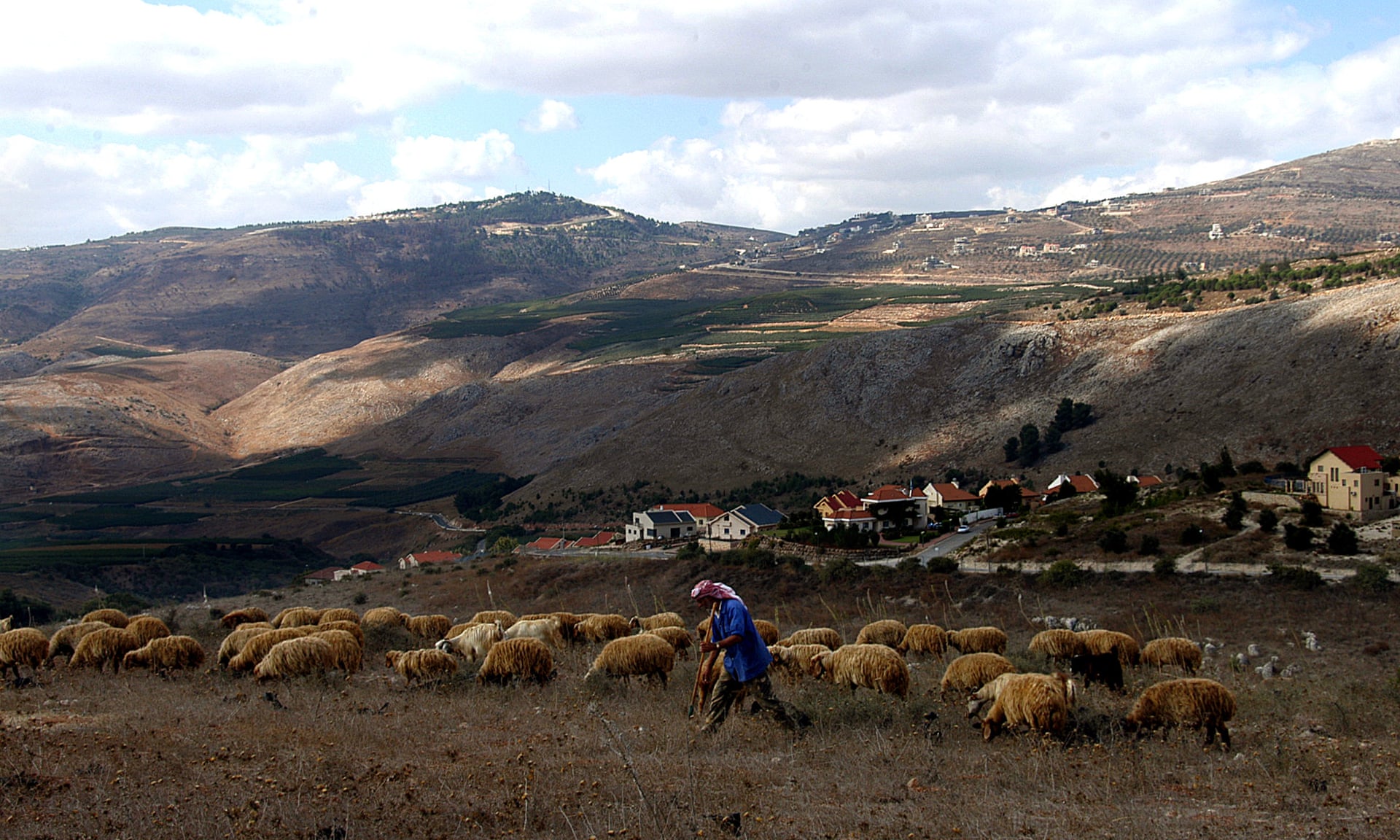
by theguardian.com — Richard Hall and Oliver Holmes In most places around the world, a shepherd’s work is a quiet and solitary business. But in the rolling borderlands of southern Lebanon, a wandering sheep can lead to a diplomatic incident or worse. In the years since Israel’s withdrawal from most of Lebanon in 2000, a game of cat and mouse has been played out on the frontier between the two countries, which are still technically at war. The game pits a regional military superpower against farmers and goatherds for whom detention is an occupational hazard. The secret networks saving Lebanon’s migrant maids from abuse Read more “These incidents have happened an uncountable number of times,” said Gen Elias Kanso, a spokesman for the Lebanese army. “Sometimes the shepherd is kidnapped and other times the sheep or goats. It happened just yesterday.”
In the past two weeks alone at least two Lebanese citizens have narrowly escaped being caught by the Israeli Defence Forces (IDF). Lebanon’s state news agency reported last Tuesday that a “hostile Israeli infantry force crossed the border line”, firing several smoke grenades in an attempt to apprehend a shepherd. The last successful captures were in May, when a shepherd and a civilian were detained days apart. As is usually the case, they were released a short time later after questioning. Part of the reason for this back-and-forth is that no official border exists between Lebanon and Israel, only a UN-mandated line of withdrawal known as the blue line.
Lebanese shepherds who traverse this ambiguous terrain with their livestock often unknowingly cross the poorly marked, unfenced line. Over the past year the UN peacekeeping force that patrols the area has documented more than 800 violations of the blue line by shepherds and farmers. “I’ve seen some of them myself. You’ll see the sheep go across the other side and he has to get them back,” said Andrea Tenenti, a spokesman for the United Nations Interim Force in Lebanon (Unifil). “The areas with good grazing are along the blue line, where the markings aren’t very well defined. It’s of course part of the shepherd’s daily routine. It’s always been like that.” At other times, the Israeli army crosses the boundary to seize a herder. The Lebanese army sees the captures as a concern, but one that can be contained. Officials say the near daily violations of Lebanese airspace by Israeli jets is of far more importance. The IDF did not respond to a request for comment. It regularly detains those who cross the blue line on suspicion of being spies for Hezbollah. Lt Col Sarit Zehavi, who previously worked for the IDF specialising in military intelligence, said the Lebanese shepherds were “part of the view”.
Asked whether she believed some of the shepherds were Hezbollah members on intelligence-gathering missions, she said: “What I can say is that there are shepherds. But in some of the cases, they are not only shepherds.” Tenenti said there was no clear evidence for the assertion. “They claim this, but all these crossings have been properly investigated by the mission,” he said. Because the Lebanese army has no direct communication with Israel, Unifil’s peacekeepers act as the go-between to have the shepherds returned. “We get in touch with the Israeli side very quickly and ask them to release them,” Tenenti said. “In most cases, the shepherds get questioned and are released the following day or the same day.” These skirmishes can attain folktale status. Israeli troops made an attempt to detain Samer Salam Diab, 38, in the village of Kfarchouba in 2015, but were thwarted when the man’s dog reportedly attacked the soldiers. Locals held protests outside Unifil’s office in the village the following year after Israeli forces returned more than 134 goats “in a bad condition” following a brief detention, according to Lebanese state news. The altercations may appear trivial, but deadly clashes have erupted between the two countries over minor infractions. The cutting down of a tree whose branches had overhung a fence along the demarcation line sparked a confrontation in 2010 in which five people were killed. “In this area, issues that may not be considered a big deal in other parts of the world can become a big issue,” Tenenti said. Aside from a few isolated incidents, the border has been largely peaceful in recent years. Both sides are keen to avoid a repeat of the devastating 2006 conflict, sparked by a cross-border raid by Hezbollah. Around 1,200 people, mostly civilians, were killed in Lebanon, and much of the south of the country was destroyed by bombing. On the Israeli side, 158 people were killed, most of them soldiers. “We are not worried about it getting out of control,” Kanso said of the shepherds’ scuffles with the IDF. “We always manage to get them back.”



